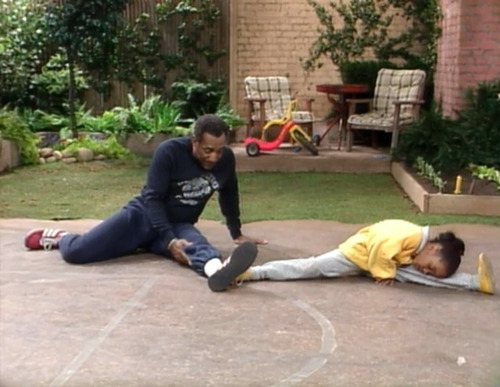Disclaimer: This is a long one, but it's that important to me.
As primary children we sing, “I’m so glad when Daddy comes home.” Why would we be glad? What does Daddy have to offer? Isn’t he the butt of most family jokes as the buffoon who doesn’t know what’s going on, or who’s constantly being walked all over by the mother? Isn’t he more of an extra child who happens to bring home a paycheck, as commonly seen on TV sitcoms?
The typical view of fatherhood today is degrading to the sacred title of “Father.” What should a real father be, and what should he do?
First: Preside
The First Presidency and Quorum of the twelve Apostles of the Church of Jesus Christ of Latter-Day Saints stated in The Family: A Proclamation to the World, that, “By divine design, fathers are to preside over their families in love and righteousness.” To “preside” does not imply to rule or to dominate. It simply means that he is the one that makes sure that things regarding the family get done, whether this is family prayer and home evening, family councils, projects around the house, whatever. As the presider, he is the one to lead, meaning, to inspire, invigorate, and set the example. He does not tower over his wife, but she does not step on him either. They work together as a team. But when things need to be moved forward, Daddy needs to take the first step.
In The Family proclamation, the presiding Brethren continue to say, “…Fathers…are responsible to provide the necessities of life and protection for their families.” They have the role of “bread winner” for the household. “Verily I say unto you, that every man who is obliged to provide for his own family, let him provide, and he shall in nowise lose his crown” (D&C 75:28). President Ezra Taft Benson, in his talk entitled “To Fathers in Israel,” (1987) suggests that this is primarily due to the responsibility of Mom to stay home to care for the children. He even declares that this is her right – to have a husband provide for her and the kids: “While she cares for and nourishes her children at home, her husband earns the living for the family, which makes this nourishing possible.”
Third: Protect
The world is a scary place. Crime, natural disasters, economic crises, immorality, the list goes on. For every single one of these topics, whether they be physical, mental, social, or spiritual, it is Dad’s responsibility to make sure that nothing harmful enters his family’s home (again, utilizing his role as the presider to make sure that the protection happens.) He keeps the house in good repair to protect his family from the possible storms of nature. He ensures that internet filters are in place, and that no book, magazine, CD or movie that could harm them passes through those doors. He is selective and cautious of whom his children spend time with (especially those who want to date his daughters.) He keeps himself healthy mentally active to be able to ward off any potential criminal or ill-comer – anyone who would negatively impact his home. That house needs to be as close to the Temple as possible, and he is the one to check the “recommends” of any who wish to enter.
Fourth: Play
Who wants a boring Dad? When I was an EFY counselor I conducted an activity designed to help the youth become more familiar with Heavenly Father by writing down the attributes of a perfect Dad. The first attribute I heard one night in particular was, “fun.” It struck home. How often do we recognize Dad’s responsibilities to spend sufficient time in the office or on the job site, to make sure the family is up and getting ready for church, and to ward off those weird potential boyfriends? But how often to do we forget that Dad is also the one to help the kids build that tree house, to dress up silly for his baby girl’s tea party, and to teach his boys how to throw and catch a baseball? He is to be a coach and a cheerleader. “Having Dad there makes all the difference.” (Benson, 1987)
Fifth: Love
Dad should be respected, but never feared. His strength is not for hurting. His passion and indignation should be directed toward those who would harm his family, not those who are in it. Yes, he will need to provide discipline at times, but not sentences. Children will mess up and Dad needs to be there to help restore order, keeping their well-being as his highest priority. When a child does wrong, his or her parent might say, “Go to your room,” or “Go to ‘time out.’” However, the Savior will open His arms to us when we make mistakes and say, “Come unto me.”





